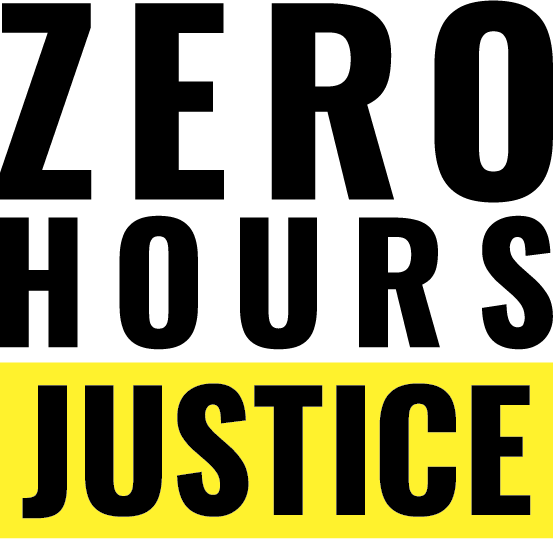|
By Pravin Jeyaraj
Zero Hours Justice's minimum criteria for employers who use zero hours contracts closely matches the rights that would be available to zero hours workers under the Directive on Transparent and Predictable Working Conditions. We therefore back the Trade Union Congress (TUC)'s call for the government to "keep the pace with the EU on rights" and "bring forward the long-awaited employment bill to end exploitative work practices like zero-hours contracts, once and for all".
Our own analysis shows that many zero hours workers already have what are in effect long-term, regular and predictable working patterns, even it is not technically guaranteed. We see no reason why such workers should not be entitled to the protections that would be available to them if they were on permanent or fixed term contracts. It's not only the EU that the UK is at risk of falling behind but also English-speaking common law Commonwealth jurisdictions, the very countries who similarity to the UK Brexit was meant to emphasise. Last year, the Australian government put forward legislation that would compel employers to offer permanent contracts to casual workers who have worked for them for a year and have been in regular shifts for six months. In 2017, New Zealand effectively banned zero hours contracts, followed by Ireland on Christmas Day in 2019. A court ruling in South Africa has found that out not guaranteeing minimum hours constituted "less favourable treatment", a breach of the Labour Relations Act 2015. In 2019, the UK did consult on a number of reforms, including compensation for shifts cancelled at short notice and minimum notice periods for cancelling shifts. Nothing much appears have to happened with that consultation. Zero Hours Justice has receive correspondence from the Department for Business, Energy and Industrial Strategy confirming that forthcoming legislation would contain a right for zero hours workers to request a more predictable contract after 26 weeks of service. The problem is that no-one knows when the proposed employment bill will materialise. By Pravin Jeyaraj
Given the contribution of key workers during the pandemic and throughout lockdown and local restriction, we agree with the TUC that they deserve a "decent" pay rise. This is even more important for those key workers who are on insecure zero hours contracts. The precariousness of their work and income should at least be balanced, even in part, by a wage the covers the actual cost of living.
From 1 April 2021, the minimum wage for those aged 25 and over will be £8.91. By comparison, the real Living Wage is £10.85 for those in Greater London and £9.50 for those outside. By Pravin Jeyaraj Yet, when the clocks went forward at 1 am on 28 March 2020 for British Summer Time, many of them would haver automatically lost an hour's work. Zero hours workers are paid at an hourly rate for the hours actually worked. So if they were working at 1 am, they may well end up a losing an hour's pay, compared to if they had worked on any other night. On the plus side, if they are working when the clocks go back at 2 am on 31 October for Greenwich Mean Time, then they should be paid an extra hour. They are effectively working the hour between 1 am and 2 am twice.
But it is not enough for employers to argue that the lost hour in March is balanced by the extra hour in October. Firstly, the insecurity of zero hours contracts means that someone working 28 March may well not ben working in 31 October. Secondly, if a worker is on the minimum wage, the hourly rate in October will usually be higher than the hourly rate in March. By Pravin Jeyaraj
Universities
There are, on average, almost twice as many female zero hours workers, compared to male zero hours workers, in the 71 universities that use zero hour contracts. Some universities have three and four times as many women on zero hours contracts than men. Local authorities
There are, on average, two and a half times as many female zero hours workers, compared to male zero hours workers, in the 222 local authorities across the UK that use zero hour contracts. Some local authorities have three and four times as many women on zero hours contracts than men. Some local authorities have between six and ten times as many women on zero hours contracts than men. One local authority (North Hertfordshire District Council) even has 18 times as many women on zero hours contracts compared to men. NHS organisations
There are, on average, more than three times as many female zero hours workers, compared to male zero hours workers, in the 142 NHs organisations across the UK that use zero hour contracts. Most organisations have between two and ten times as many women on zero hours contracts than men.
By Pravin Jeyaraj
The data reveals that, for universities and local authorities, there are almost twice as many organisations where women on zero hours contracts outnumber men.
Source: Zero Hours Justice
Source: Zero Hours Justice For NHS employers, there are four times as many organisations where there are more women on zero hours contracts, compared men.
Source: Zero Hours Justice Our research reflects the Office for National Statistics' Labour Force Survey, which shows that 3.3% of women in employment are on zero hours contract, compared to 2.7% of men.
|
contactFor press enquiries or permission to reuse content, please contact: Archives
June 2024
CATEGORIES
All
|
|
Company No: 12417909 Registered Office: 38 Coney Street, York, Y01 9ND
|






 RSS Feed
RSS Feed


